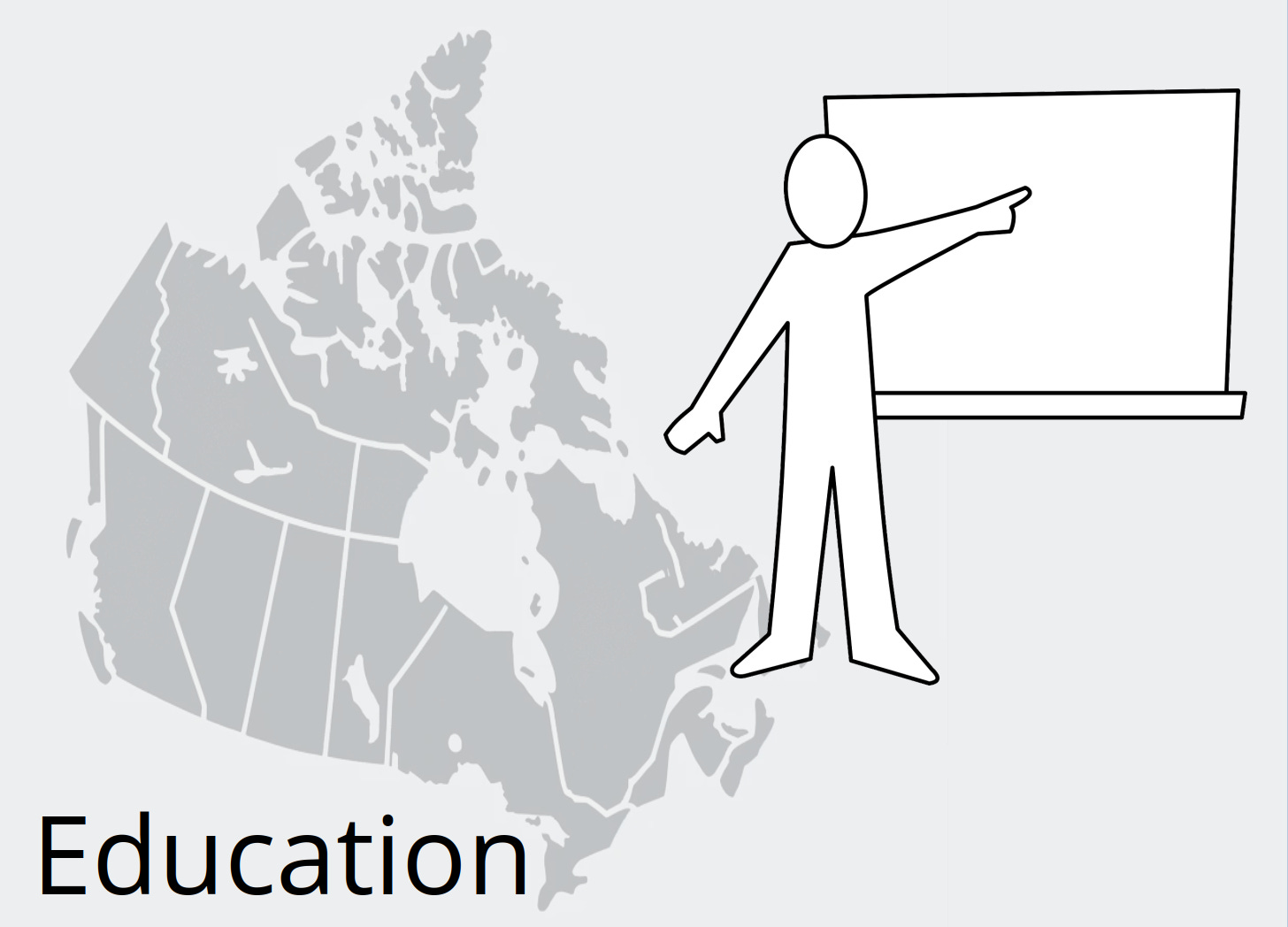Rethinking Public Education
It's Labour Day. A time to throw caution to the wind and recklessly kick at the third rail.
On any given school day some six million Canadians between the ages of 5-18 are “locked up” - often against their will - inside K-12 schools. Approximately 2.5 percent of Canada’s gross domestic product is spent on public education. And, using Ontario as an example, that’ll cost more than $30 billion annually, or around 16 percent of the province’s budget.
Society invests heavily in education, and yet no one seems completely satisfied with the results. When was the last time you met an adult of any political stripe who didn’t have an opinion about what’s wrong with schools these days?
This piece was inspired by a comment to my recent Ranking Public Education Efficiency By Province post. That’s where I presented evidence suggesting increased funding would probably not solve the deep, systemic problems casting gloomy shadows up and down the halls of our ministries of education.
So is there a better way to do public education? I honestly don’t know. But I do know that it’s unlikely we’ll ever find out if we don’t go back to the very beginning and ask some basic questions. And I also know that I haven’t seen most of these particular questions asked anywhere else:
What should public education accomplish?
How do you plan a trip if you don’t know where you want to go?
We can probably agree that all children should learn the skills they’ll need to live productive and successful lives as adults. And there’s not a lot of controversy in saying that those skills should include competence in reading, writing, and basic mathematics.
We can probably also agree that students should graduate with a healthy civic identity which would include comfort with, and loyalty to our cultural and legal heritage. However, things will get prickly when we try to define exactly what we mean by “identity” and “cultural”. Not to mention “heritage”. How do we decide whose definitions win?
Some will argue that schools should teach only skills and leave values out of the curriculum altogether. In other words, education should be culturally neutral. The biggest problem with that is that teachers aren’t neutral. Having taught high school for 20 years myself, I can tell you that, by design or by accident, a teacher enters the classroom as a complete and unsegmented person. And even the drowsiest, most distracted student senses it.
Some go a step further and advocate for teaching children the "critical thinking skills" they’ll need to make their own value judgments. Well that’s fine if you’re providing only the relevant epistemological, semantic, cognitive, and heuristic tools. But if your “critical thinking” curriculum includes even one values-based answer (see above for “unsegmented teachers”) then, by definition, you’re a propagandist.
What, exactly, is wrong with what we’ve already got?
There’s a lot here about which I simply don’t have enough clarity:
I’ve read that grade inflation is allowing students to graduate without having mastered the content to which their transcripts attest. But I haven’t been able to find hard data to assess the claims.
I’ve heard that employers are unsatisfied with the skills and work ethic of the young graduates applying for jobs. But how many employers? And how unsatisfied are they?
As a (former?) IT system administrator, I’m well aware that large-scale technology adoptions in education environments were, historically, often the product of vendor hype, unreasonable expectations, and precious little serious research. And they often led to outrageous unintended consequences. But I’m no longer sufficiently plugged in to that world to have a sense of whether, on aggregate, technology is helping or harming children (or simply draining budgets).
I’ve heard that at least some school boards appear to be dominated by extreme politically-driven ideologies. But how many boards are impacted? And how often do those ideologies find their way into classrooms?
I’ve seen evidence that Ministry-level policy research is relying on poor and debunked scholarship. But has it made a difference with anyone involved with actual classroom teaching? (And how do you measure “debunked”?)
Should control over education policy be centralized?
Curriculum policy in Canada is generally set at the provincial ministry level and politely ignored everywhere else. I’ve already written about that in these pages. But, as discussed earlier, K-12 policy development costs us hundreds of millions of dollars each year across the country.
I’m not sure it’s even possible to impose detailed policy and curriculum guidelines. As a wise man once told me, you can tell them exactly what you want them to say but, with an arched eyebrow or a subtle voice inflection, experienced teachers communicate whatever message they want.
Now, considering how the system is currently funded, it makes perfect sense that elected officials at the provincial level should determine education policy. What makes somewhat less sense is that the policy researchers they hire appear to invest a great deal of energy resisting government “interference” and also refuse to share their research with the public who paid for it.
But, in theory at least, is the current system ideal?
Keep reading with a 7-day free trial
Subscribe to The Audit to keep reading this post and get 7 days of free access to the full post archives.




